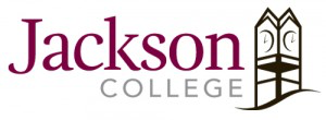Public Health (BS)
What is Public Health?
The Department of Public Health at Wayne State University specializes in broadly preparing undergraduate students to meet current and emergent threats to the health of vulnerable individuals, populations, and communities. As a truly interdisciplinary field, public health draws strength from the natural sciences, biostatistics, and behavioral sciences to address the social determinants of health inequalities, health care access and affordability, mental health and suicide prevention, housing and food insecurity, and many other issues.
Public health faculty are engaged in meaningful community-based intervention research centered on immigrant health, childhood obesity, healthcare access, student mental health, and patient-centered outcomes. Faculty and instructors have professional experiences working with city and county governments, health care organizations, health insurance companies, foundations, and non-profit organizations.
What can I do with a Public Health Degree?
Choose an area of study (associate degree), earn Michigan Transfer Agreement (MTA), and complete pathway courses. The tables below outline the required courses. Courses not taken or transferred can be completed at Wayne State University.
Jackson College Associate Degree Options
- Associate in Arts (AA)
- Associate in Science (AS)
- Associate in General Studies (AGS)
- *Public Administration (AAS)
- *Vascular Sonography (AAS)
- *Allied Health (AAS)
- *Cardiac Sonography (AAS)
- Other degree programs are possible but may exceed 120 total credits
- *Respiratory Care (AAS)
*Satisfies the WSU College of Liberal Arts and Sciences minor requirement.
Earn the Michigan Transfer Agreement (MTA) - Satisfies Wayne State University's General Education Requirements
| Goal/Area of study | Jackson College Course | Credits | WSU Equivalent |
|---|---|---|---|
| English Composition | ENG 131 Writing Experience I | 3 | ENG 1020 |
| ENG 132 Writing Experience II | 3 | ENG 3010 | |
| Mathematics | MATH 133 Intro Probability and Statistics | 4 | STA 1020 |
| Social Science | See MTA; approved Social Science | 3 | See JC advisor |
| See MTA; approved Social Science | 3 | See JC advisor | |
| Fine Arts/Humanities | *FRN, GER, or SPN 131 | 4 | 1 of 2 foreign language |
| See MTA; approved Humanities/Fine Arts | 3 | See JC advisor | |
| Natural Science | BIO 140 Public Health and Disease | 3 | PH 2100 |
| See MTA; approved Natural Science with lab | 4 | See JC advisor | |
| Public Health Pathway Courses | *FRN, GER, or SPN 132 | 4 | 2 of 2 foreign language |
| Total Credits | 34 |
**All students pursuing a degree in the College of Liberal Arts and Sciences must successfully demonstrate language proficiency equivalent to the two-course sequence in a single foreign language. Proficiency is demonstrated by completing courses numbered 1010 and 1020 in one of the following subject area codes: ASL, ARB, ARM, CHI, FRE, GER, GKA, GKM, HEB, ITA, JPN, LAT, POL, RUS, SPA, SWA, and UKR.
| Transfer Credit Summary | Credits |
|---|---|
| Pathway and Michigan Transfer Agreement (MTA) | 34 |
| Associate degree requirements and additional electives * -See advisor for course recommendations based on associate degree requirements, educational interests, and career goals. | 26-50 |
| Total Transfer Credits | 60-84 |
*The range of credit hours allows for earning credentials, such as certificates, or additional transfer credit while completing an associate degree. Some course(s) not included in the pathway may satisfy Wayne State requirements.
JC recommendations: Associate in Science (AS), Associate in General Studies (AGS), Public Administration (AAS), or Allied Health (AAS)
The following courses are required to finish the degree requirements. Any pathway course(s) not completed at the community college can be completed at Wayne State University.
Bachelor of Science (BS) in Public Health
| WSU Course | Credit |
|---|---|
| PH 3000 Public Health Administration | 3 |
| PH 3100 Social And Behavioral Aspects of Public Health | 3 |
| PH 3200 Intro to Biostatistics | 3 |
| PH 3300 Epidemiology | 3 |
| PH 3500 Environmental Health | 3 |
| PH electives (see WSU advisor) | 9 |
| Choose one (1) of the following Methods courses:
| 3 |
| Choose one (1) of the following Culminating courses:
| 3 |
| Choose one (1) of the following concentrations:
| 6 |
| Minor - may be taken in the College of Liberal Arts and Sciences or any other WSU school or college. See WSU Advisor. | 0-24 |
| Total Credits | 36-60 |
| Wayne State credit summary | Credit |
|---|---|
| Major and minor | 36-60 |
| TOTAL WAYNE STATE CREDITS | 36-60 min. |
| TOTAL WAYNE STATE and TRANSFER CREDITS | 120 min. |
Primary contacts

Jackson College
Navigator Team
517-796-8425 | jcadvising@jccmi.edu

Transfer Student Success Center
313-577-2487 | transfer@wayne.edu
Public Health Department
Academic Advising
Notes
- You can review how courses transfer using the course equivalency tool for other acceptable equivalences. For a self-service, customized WSU degree audit, please visit https://wayne.edu/transfer/community-college/tess
- Wayne State requires a minimum of 30 credits in residency.
- The pathway allows multiple associate degree options with the flexibility to customize your degree path. The minimum eligibility to participate in the Wayne State Transfer Pathways is a cumulative GPA of 2.5 or above, Michigan Transfer Agreement (MTA), and an associate degree (earned or Reverse Transfer). See transfer credit guidelines.
- All college-level (non-developmental), non-duplicated courses with a 2.0 (C) grade point average (GPA) or above will be considered for transfer credit. Earned credit will transfer as 1) direct course equivalency, 2) major/department credit, or 3) elective credit. Credits not earned at JC will need to be taken at WSU.
- These pathways do not replace the importance of JC and Wayne State academic advising. The pathway provides a general roadmap to degree completion.